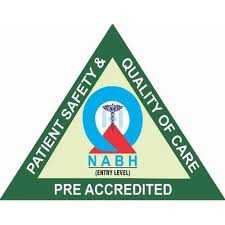
Retinal detachment is a critical eye condition that demands swift medical intervention. Surgical procedures have emerged as highly effective in rectifying detached retinas, ensuring vision preservation. But can one undergo retinal detachment surgery in Noida and what are factors that one must consider. This article aims to unravel the complexities of retinal detachment surgery, shedding light on potential risks and benefits associated with the procedure.
Retina Surgery in Noida | Retina Uvea Vitreous
Understanding Retinal Detachment Surgery:
Retinal detachment transpires when the delicate layer of tissue at the back of the eye, known as the retina, detaches from its normal position. Surgery stands as the primary recourse for repairing a detached retina, and several surgical approaches exist, each customized to the specific characteristics of the detachment.
Scleral Buckling:
This conventional technique entails placing a silicone band (scleral buckle) around the eye to counteract the force pulling the retina away. The surgeon may also drain subretinal fluid or introduce a gas bubble to facilitate the reattachment of the retina.
Vitrectomy:
In a vitrectomy, the surgeon extracts the vitreous gel from the eye and substitutes it with a gas bubble or silicone oil. This procedure is often combined with other techniques to address retinal tears or detachments.
Pneumatic Retinopexy:
This less invasive alternative involves injecting a gas bubble into the vitreous cavity. The patient’s head is then positioned to allow the bubble to exert pressure against the detached retina. Laser or cryotherapy is subsequently employed to seal the retinal tear.
Potential Side Effects of Retinal Detachment Surgery:
While retinal detachment surgery generally proves effective in reattaching the retina and thwarting vision loss, like any surgical procedure, it carries inherent risks and potential side effects. Individuals contemplating this surgery must be cognizant of these factors and engage in thorough discussions with their eye care professionals.
Infection:
Any surgical procedure carries a risk of infection. In retinal detachment surgery, strict sterile techniques minimize this risk. Vigilance for signs of infection post-surgery, such as increased redness, swelling, or discharge, is crucial.
Changes in Intraocular Pressure:
Surgery may impact intraocular pressure, with cases of elevated pressure requiring monitoring and management to forestall complications like glaucoma.
Cataract Formation:
Vitrectomy, a common surgical approach, may expedite cataract development in the eye’s lens. Subsequent cataract surgery might be necessary, adding an extra surgical procedure to the patient’s journey.
Recurrent Retinal Detachment:
Despite successful surgery, there exists a slight risk of detachment recurrence. Additional surgeries may be warranted to address recurrence and achieve a stable, attached retina.
Visual Disturbances:
Post-surgery, some individuals may experience transient visual disturbances like floaters, blurriness, or changes in peripheral vision. Typically, these disturbances resolve as the eye heals.
Proliferative Vitreoretinopathy (PVR):
PVR, a complication involving abnormal tissue growth on the retinal surface, may lead to detachment. Close postoperative monitoring aids in identifying and addressing PVR if it develops.
Complications from Gas or Silicone Oil:
The use of gas or silicone oil during surgery carries its own considerations. Gas bubbles gradually dissipate on their own, but silicone oil may necessitate a subsequent procedure for removal.
Balancing Risks and Benefits:
The decision to undergo retinal detachment surgery demands a meticulous evaluation of potential risks and benefits. Recognizing that successful surgery often prevents or mitigates vision loss associated with retinal detachment is paramount. The benefits include:
Vision Preservation:
The primary objective of retinal detachment surgery is to preserve vision by reattaching the retina and preventing further damage.
Improved Quality of Life:
Successful surgery significantly enhances an individual’s quality of life by maintaining or restoring visual function.
Prevention of Further Complications:
Timely surgical intervention prevents the development of complications linked to untreated retinal detachment, such as proliferative vitreoretinopathy.
Enhanced Prognosis:
Early detection and surgical treatment contribute to a more favorable prognosis, minimizing the risk of irreversible vision loss.
Tips for Optimal Surgical Outcomes:
To maximize the likelihood of successful surgery and minimize potential side effects, individuals undergoing retinal detachment surgery should consider the following:
Early Detection:
Timely diagnosis and intervention significantly contribute to positive outcomes. Regular eye exams are essential for detecting retinal issues early.
Adherence to Postoperative Instructions:
Following postoperative instructions regarding medications, activity restrictions, and follow-up appointments is crucial for optimal recovery.
Open Communication with the Surgeon:
Maintaining open and transparent communication with the surgeon ensures that any concerns or changes in symptoms are addressed promptly.
Healthy Lifestyle Choices:
Adopting a healthy lifestyle, including proper nutrition and managing systemic conditions, contributes to overall eye health and recovery.
Conclusion:
Retinal detachment surgery emerges as a pivotal intervention for preserving vision in individuals grappling with this severe eye condition. While the procedure generally proves successful, acknowledging potential side effects and risks is imperative. Open communication with eye care professionals, early detection, and adherence to postoperative instructions play pivotal roles in achieving optimal outcomes. The decision to undergo retinal detachment surgery should be grounded in a thorough understanding of the individual’s specific case, the potential benefits of surgery, and collaborative efforts between the patient and the healthcare team.
Call Now at 0120-2481481, 2480480 +91 88003 13134 or email us at info@visionplus.net.in.
Book an Online Appointment: https://visionplus.net.in/contact/

